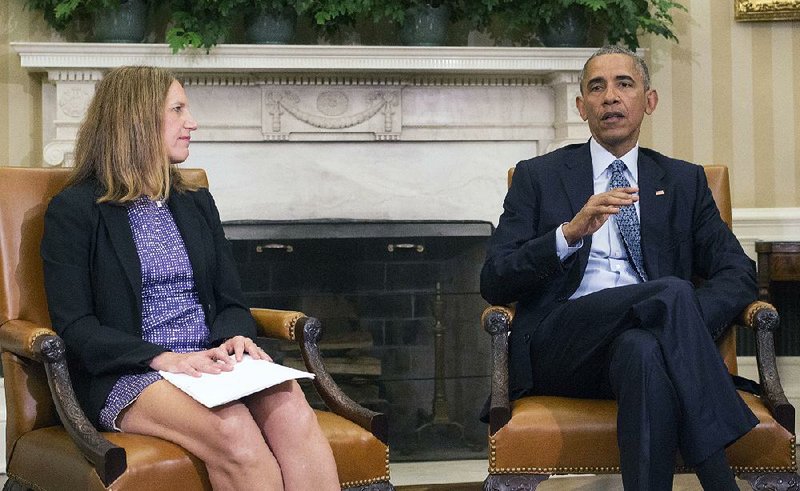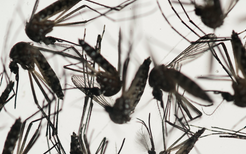WASHINGTON -- President Barack Obama met with his top public health advisers at the White House on Friday and warned Americans that unless lawmakers approve funding soon to fight the Zika virus, some families in the United States would face "tragedies that can last a lifetime."
"We feel fairly confident that we can develop a vaccine for Zika, and that would help a whole lot of people and allow us to get out in front of this problem before it's in the continental United States, but that requires resources," Obama said. "The problem is, right now, that money is stuck in Congress. And we have not seen the House and the Senate come together in a sensible way to put forward the dollars that we have requested that have been budgeted to get the job done."
The House has passed a funding bill administration officials have described as inadequate for the task, and earlier this week, Senate Democrats blocked a $1.1 billion funding package to fight the mosquito-borne virus because of "poison pill" measures.
Obama, who met with Health and Human Services Secretary Sylvia Mathews Burwell, National Institute of Allergy and Infectious Diseases Director Anthony Fauci, and Centers for Disease Control and Prevention Director Tom Frieden, took aim at those congressional riders when speaking to reporters Friday.
People are "trying to attach legislation on a bunch of unrelated topics to this funding," he said. "It's been politics as usual rather than responding smartly to a very serious public health request."
"But when there are emergencies, when there are public health emergencies, when we know that we have the chance to prevent serious tragedies in the lives of families and protect the health and safety of our populations, and particularly our children, then those politics need to be set aside," he added.
Republicans, for their part, said that it is the White House's refusal to compromise that has delayed the deployment of new funds.
In an interview for C-SPAN's Newsmakers, Fauci said vaccine development will suffer unless Congress moves quickly.
"If we don't have a firm commitment to get the money to us within several weeks into the summer, then we're going to have to scramble and figure out how we can work so as to not slow down the process," Fauci said. NIH has been using money from other accounts for vaccine development. But a critical phase that begins early next year could get delayed without additional funds.
Because Congress has not yet approved the administration's Zika request, the administration has shifted money previously earmarked for Ebola, and HHS has redirected about $44 million in public health emergency preparedness grants that state and local health departments are slated to start getting Friday.
On Friday, the CDC said it has awarded $25 million in Zika-specific funding to 53 state, city and territorial health departments to help strengthen preparedness and response plans. The funding became effective Friday, and all jurisdictions will have the funds by next week, officials said. The recipients were chosen based on risk of local spread, history of mosquito-borne disease outbreaks and size of population.
Puerto Rico, which remains the hardest-hit place in the United States when it comes to Zika, received $5 million. Florida and Texas, which are considered at high risk, each received over $1 million.
Nevertheless, in some of the highest-risk places in the continental United States, such as the South, the constraints on federal funding have prompted some state and local officials to focus on promoting educational awareness by distributing coloring books to grade school kids and taking other measures.
Puerto Rico's Aedes aegypti mosquito population -- which transmits the virus -- is resistant to the most common types of insecticides that the island has been using. The government has been in discussion with CDC officials about beginning aerial spraying, and there have been protests about that in front of the CDC's office in Puerto Rico by some who question its environmental impact.
A Section on 07/02/2016

